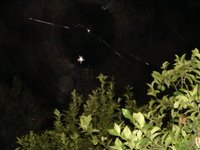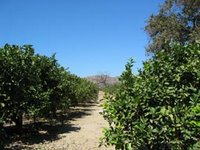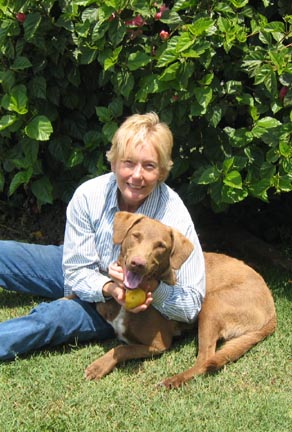Spider Season

I’ve learned that there are many more seasons than the four we usually think of. There’s the rain season and the fire season and there is also the spider season. In mid-July to early August spiders the size of quarters with bulging bodies show up in the orchard. In the early evening they jump from one row of trees to the next, twelve to fifteen feet, throwing their silk thread behind them to connect two facing trees. They then weave their webs in the center of the alley. They can finish an eighteen inch web in a few minutes.
Then they sit and wait for a victim to blow by.
I leave nature alone as much as I can. But I don’t like it when a spider falls down my shirt. So this time of year when I walk in the orchard I arm myself with a spider stick. The best ones are about four feet long. If the spider’s anchor line is over my head I pass under it with no trouble to the spider. If it is lower I have no choice but to break through. The line clings to the spider stick and I fling it and the spider back into the trees. This works fine as long as I see the web.
The trouble with the spiders usually comes at night when I ride my John Deere Gator out in the orchard to check on irrigation. I drive with a spider stick in my right hand and watch for the webs beyond the headlights. Silvery web after silvery web cross my path. I steer around as many as possible and use the stick on the others. Nevertheless stringy sticky spider silk smashes me in the face and I bat at my head and frantically brush off my clothes hoping to shed a spider that may or may not be there.
The spiders are gone by mid September, victims of the necessity of dealing with bud mite, thrips and other harmful organisms. I know they will return. In their season.


